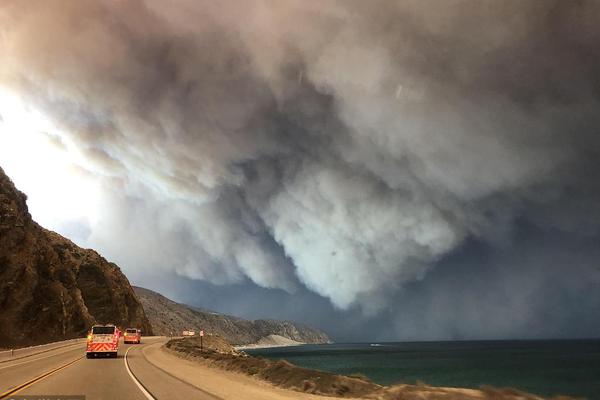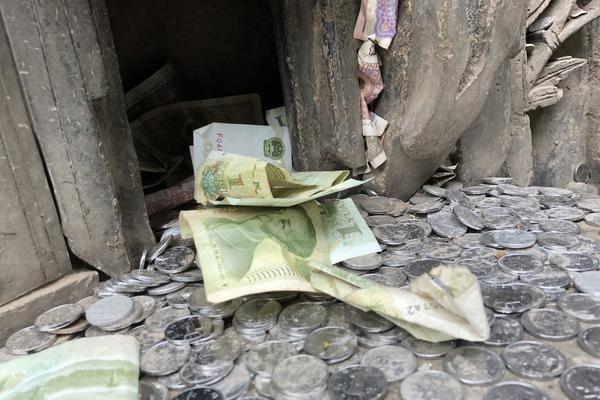Travel Velocity
Tourists leave a large carbon footprint in the sand Richie Diesterheft
Richie Diesterheft o
l
u
m
n
s
They have returned. The loud-talking, shorts-wearing Americans who pour into tourist destinations to be waited upon by less fortunate others have made their comeback. Hang around any budget airline’s boarding area and you can see them in action: neon shirts, flip-flops, and loud remonstrations to wayward children. Theirs is an invasive kind of presence, abrasive and entitled; they want to get to their destination as fast as possible, consume as much as possible, as visibly as possible. As pandemic restrictions wane, “fast travel”—the parallel phenomenon to cheap and exploitative “fast fashion”—is here to stay.
One fast-travel favorite for American travelers are the beaches of Mexico. On May 2, the erratic and confusing Centers for Disease Control downgraded Mexico from Level 3 to Level 2 on the Covid warning scale. A communique explained that Level 4 (high risk) would now only be used for countries with “rapidly escalating” cases and “health care infrastructure collapse.” At Level 2, Mexico occupies the same ranking as Fiji and the Bahamas, a notch safer than Germany and Greece. While this nod from the CDC is notable, the fast-travel crowd seeking budget travel deals is not one to be much concerned with the CDC and its recommendations. For those who are booking two- or four-day trips promising an indulgent hedonism, bureaucratic rules and regulations are beside the point. So off they go to lay on beaches, sipping the mixed drinks that are part of their all-inclusive resort package. Any time not spent lounging or eating or drinking is spent shooting TikTok videos and Instagram content. The projection of fun and indulgence to their followers is one of the most gratifying bits of fast travel. In a world where everyone is an influencer, acts of rapid consumption provide just the sort of content that gets views and likes and prominence in friend groups.
Fast travelers are the kitschiest possible players in a Greek tragedy, destroying the very beauty they have come to consume. In Mexico, Tulum is a favorite destination for budget American travelers; it’s become so overplayed that it has earned the nickname “Williamsburg of Mexico.” Here American hordes descend on beaches and do a hatchet job on its once pristine natural beauty. Located about eighty miles away from the resort town of Cancún, Tulum was initially sold as an alternative to the tacky and touristy Cancún. Today, it’s overdeveloped. Everyone seems to care about the environment until it seeks to mess up their travel plans, their girl trips, their family reunions, their honeymoons.
But the environment can often strike back. Just as several new all-inclusive resorts, including the Hilton Tulum Riviera Maya were set to open, a natural disaster has unfolded. The strip of beaches from Cancún to Tulum nicknamed Riviera Maya has been invaded by an unprecedented amount of an odorous seaweed called “sargassum.” The heaps of brown vegetation wash up on the once white and pristine beaches, stinking up the shore and intruding on the Instagramable scenery. In March, the Guardianreported the case of one hotel owner who put his six properties up for sale. He blames climate change for putting him out of business.
So off they go to lay on beaches, sipping the mixed drinks that are part of their all-inclusive resort package. Any time not spent lounging or eating or drinking is spent shooting TikTok videos and Instagram content.
The resort owners who are not selling still have to come up with a solution for the sargassum. There’s nothing they can do about the warmer oceanic temperatures or the increase in fertilizer runoff that have been suggested to have caused the seaweed to proliferate, but the wealthier resorts are sending heavy equipment and boats out to remove it. In the early morning hours before the tourists hit the beaches, construction equipment is used to remove the sargassum that has already washed up. Boats are sent off into the sea to collect seaweed in the water; barriers are being considered. The beaches and seas must be controlled, as money-making humans will not be deterred. The Mexican government has not only announced plans for a new international airport at Tulum but is also planning a new “Mayan Railway” that will take tourists to Mayan ruins not currently on the tourist track.
Mexico, of course, wants tourist dollars to keep flowing. In 2019, before the pandemic, an estimated 1.5 billion people set off for foreign destinations—a tremendous rise from the 25 million who did so in 1950. These scores of tourists wreak havoc on marine life, beaches, and pretty much anything in their path. Cruise ships carrying thousands of drunken revelers have killed endangered whales and dumped wastewater into the sea. All-inclusive resorts popping up everywhere further insure that tourists give all their money to the large hotel chains that own them rather than spending it in the local communities around the resort.
It is not only developing countries hosting rich tourists from wealthy countries that face problems. As everyone knows, Venice is quite literally sinking. In 2021, St. Mark’s Square in Venice flooded again. Yet for years, cruise ships full of travelers have docked right in St. Mark’s Square, whose buildings are dwarfed by the enormous hulk of these ships, not to mention the environmental impact of numbers of people unleashed into the city at the same time.
In the early days of the pandemic, there was some hope that the very idea of fast-travel “tourism” with its white, Western, and consumerist associations would undergo some rethinking. With travel and tourism halted, many previously degraded ecosystems began to flourish, as invasive humans were kept at bay by the virus. At that time, the cessation of tourism could have been characterized as an opportunity to come up with a more sustainable tourism; one that was not made up of short trips that are long in environmental effects.
It does not appear that this will be the case. Sustainable tourism requires people to acknowledge their own complicity in the destruction of all that is beautiful and worth seeing in our world. It requires them to prioritize the health of the planet over their own craven hunger for exotic experiences they can propagate on social media. Leisure travel has been so unduly hyped that even those who recognize the threats faced by our planet feel that their jet-setting does not impose irreversible costs on the planet we must all share.
The pandemic provided overdeveloped tourist havens the briefest respite. With countries relaxing restrictions for travel, the world is at an inflection point when either better (but less profitable) practices can be deployed or things can lackadaisically be permitted to return to the devastations of the pre-Covid world.



















